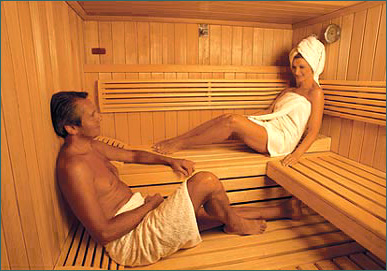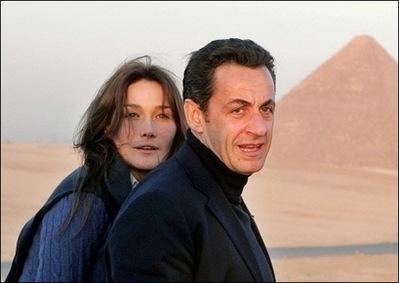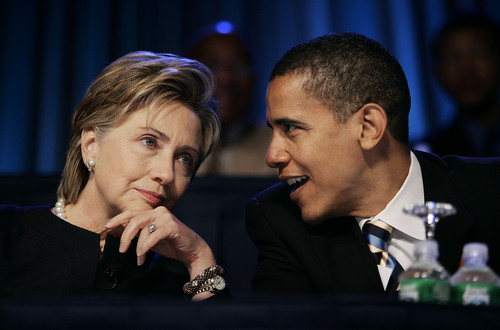
Something weird happened after Barack Obama won in Iowa last week. People around me started trying to figure out who he was, in a historical context.
Is he a visionary
Franklin Delano Roosevelt, who, like Obama, rocketed to the presidency in 1932 after serving only three years as a governor of New York at a similar age (he was 50, Obama will be 47)?
Is he a soulful
James Earl Carter who came out of nowhere in 1976 to give people hope after eight years of Nixon-Ford, Watergate, and Vietnam?
Or is he some wild combination of
Bobby Kennedy and
Martin Luther King, Jr., two men that greatly inspired the generation of Hillary Rodham Clinton, and two men whose ghosts haunt them every time they see Obama give one of his speeches?
I will confess that at least three people told me they were anticipating Obama's assassination should he win the nomination because the US "isn't ready" for a "person of color" to move into the "White" House.
I found this talk extremely depressing because as I walk around the southern tip of Manhattan island, I can't help but notice that Barack Obama looks more like the America I grew up in than the one people claim he is too different to lead.
At school I have had friends and acquaintances of every background, often times mixed. If you bump into any random human on Pearl Street, it's likely they have a story that begins in as odd a place as Honolulu, Hawaii and leads to Indonesia before stopping in Boston and Chicago.
This is what they call the "generational divide" in politics, and Obama has played his hand well by distinguishing himself from all the things about American politics that have made this younger amorphous and multicultural "generation" -- if such a diverse and abstract group of people can be recognized under one heading -- tune out altogether.
Who wanted to fight about the
Swift Boat Veterans for Truth in 2004 when they couldn't even remember that war themselves? Who wanted a political bloodbath over
Roe vs. Wade from 1973, when all of us, including Obama, entered adulthood with it in force? America, over the past 20 years or more, has been so bogged down in mind-numbing arguments over "faith" or "guns" that large swaths of younger Americans have remained apolitical because, like they have said on numerous occasions, they
really don't care.
And so to them, including myself, seeing Barack Obama speak, someone who looks like someone I might work with during my life, someone whose history of an extended family matches so many families I know, and someone who was a tyke in 1968 -- a year in which he is allegedly stuck -- is as tired of
Boomeritis as we all are, its refreshing and dangerously appealing.
I want to look away because I am afraid the man with the pretty words may sell me something we both know he cannot sell: hope in a better future. Change. Who can sell these things? Nobody. Because if you look at the history of the US, change in the form of a presidential candidate does not come often and if it does, it is because it was packaged that way. Thomas Jefferson was an old hand in American politics by the time of his
Revolution in 1800. Was it really a revolution then?

As engaging as I find Sen. Obama, I have a hard time listening to 30-second clips of Hillary Clinton because she is telling me everything I have heard from Democrats all my life.
She is an appealing candidate, because you figure after eight years sharing a bed with Bill Clinton -- and our spouses do know us, at least most of the time -- she would be best to inherit the groaning apparatus of American foreign policy.
And yet I cannot listen to her. I respect her somewhat, but listening to her speak, I find myself wondering if
Teddy Kennedy wrote the script. I know that to some people Teddy Kennedy is a dirty word, but I think he represents Massachusetts, warts and all, to the hilt.
And I hear the same promises from her that I would hear from John Kerry or Al Gore or Bill Clinton or Mike Dukakis or Walter Mondale. I hear about universal health coverage. I have heard a lot about that in my life and I don't expect to see it happen, even if Hillary becomes president. Even with Democrats controlling both houses of Congress. There are just too many institutional tripwires to stop that kind of change.
But beyond that is the arrogance, not coming from her but coming from her husband who called Obama's political rise a "fairy tale" in a demeaning way. It's an arrogance that says "we know better than you." But did Bill Clinton really know better? His record was either hit or miss and blame it on the Republicans. His professional hacks --
Paul Begala,
James Carville -- alienated so many young voters that they were able to turn comics, like
Jon Stewart or
Stephen Colbert into folk heroes.
Given a choice between real politicians or comedians, younger people would probably choose the latter. This is the legacy of the Bush-Clinton-Bush years, years of non-ending arguments over what the definition of 'is' is. People would put more faith in Colbert for President than they do in Hillary for President.
So, to summarize, voting for Hillary Clinton would give some younger people icky feelings, feelings that might dissuade many young people from voting for anyone at all, except perhaps a comedian-cum-talk show host.
Barack Obama would also give them icky feelings but in a different way: of actually in believeing in something again for a few minutes, only to be let down again. I mean how many times can you put a quarter in the slot machine before you realize that today is not your lucky day? Some of us just never win. Ever.
Barack Obama: he inspired one part of America and scares the other part. Hillary Clinton, she embodies a different part of America and turns the other part off from politics. Who is the better candidate? Decisions, decisions, decisions ...
 Yesterday on my way into the center of Tartu, I met a younger relative of my wife's named Ken who was walking up Jakobi street towards his school.
Yesterday on my way into the center of Tartu, I met a younger relative of my wife's named Ken who was walking up Jakobi street towards his school.














